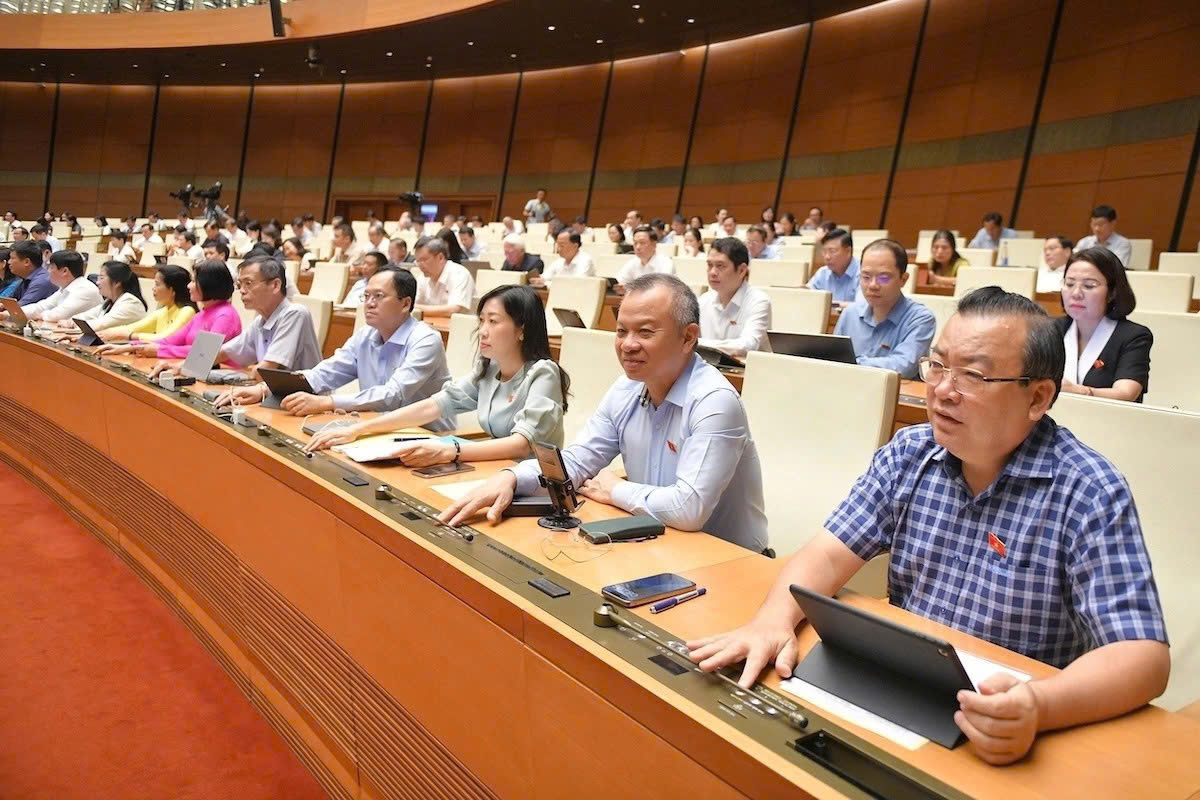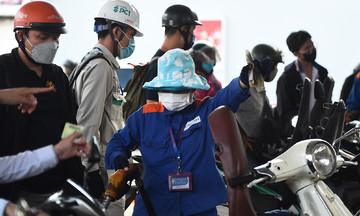The National Assembly passed the Law on Management and Investment of State Capital in Enterprises on Tuesday, 14/6, with over 92% of delegates voting in favor. The law will take effect on 1/8.
Under the new law, the management boards or presidents of state-owned enterprises will determine salary, compensation, bonus, and other benefit policies for employees and management positions. This marks a shift from the current practice where the government dictates these policies.
The government will now only regulate the salaries, compensation, and bonuses of direct state capital representatives and supervisors in state-owned enterprises, according to the newly passed law.
State capital representatives, supervisors, general directors, and other management positions will receive their salaries from the general payroll of the enterprise. Employee bonuses, as well as those for state capital representatives and supervisors, will be drawn from the enterprise's after-tax profits.
 |
National Assembly delegates vote to pass the Law on Management and Investment of State Capital in Enterprises, Tuesday, 14/6. Photo: National Assembly Press Center |
National Assembly delegates vote to pass the Law on Management and Investment of State Capital in Enterprises, Tuesday, 14/6. Photo: National Assembly Press Center
Regarding the distribution of after-tax profits, state-owned enterprises, after fulfilling required obligations, can allocate up to 50% to the Development Investment Fund for business expansion.
Enterprises can also allocate up to three months' worth of salaries to establish a Reward and Welfare Fund. Remaining after-tax profits can be used to establish other funds as regulated.
State-owned enterprises in the defense and security sectors that lack sufficient after-tax profits will receive state support to establish Reward and Welfare Funds. The maximum support level is two months' salary, based on the enterprise's performance evaluation and task completion.
The law also permits state-owned enterprises to invest in real estate without restrictions.
Previously, Phan Van Mai, Chairman of the Economic and Financial Committee, reported that some suggested restricting real estate investment to large-scale state-owned enterprises.
The National Assembly Standing Committee argued that such a restriction would limit the business autonomy of enterprises. This would contradict the policy of promoting innovation and enhancing the efficiency of state-owned enterprises, as well as the principle of avoiding prohibitive measures due to perceived lack of control. Therefore, the Standing Committee excluded this provision from the draft law.
In addition to unrestricted real estate investment, the law allows state-owned enterprises to purchase securities according to securities laws. They can also lease, rent, lease-purchase, mortgage, pledge, and purchase fixed assets. They are authorized to sell damaged or obsolete fixed assets they no longer need.
Anh Minh












